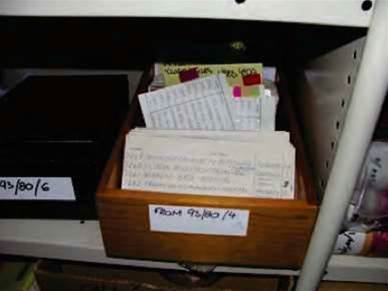The Victorian Department of Human Services had an $8 million-plus electronic record management system proposal knocked back, despite evidence that inefficient practices were hampering freedom of information requests.

The department's corporate services division submitted a funding proposal for an electronic document and records management system (EDRMS) to the state government in May 2011.
An audit report released today shows that $8.16 million was sought initially along with yearly funding of $448,000 to "establish and maintain" the system.
"The request for funding was denied," the auditor-general noted.
Auditor-general Des Pearson noted that "factual inaccuracies in the business case" may have contributed to the proposal being knocked back.
But he criticised the state government's rejection of the proposal, from the perspective that the system could improve information management by the department and solve problems with producing data for FoI requests.
"The storage and management of records affects agencies' ability to locate information in response to FoI applicants' requests," he said.
The EDRMS project was proposed after internal estimates by the department that 90 percent of its documents "are not properly managed as records".
"Since DHS does not have a robust record keeping system, records are stored in network drives, hard drives, portable devices and emails," Pearson noted.
"Records that have not been managed in accordance with better practice are difficult to locate, requiring more resources to search for them.
"In some cases these records cannot be located."
Despite apparent shortcomings in the business case for the EDRMS system, Pearson said it correctly indicated "that DHS lacks a strong information management culture, and manages its information in an ad hoc and inconsistent manner."
"An EDRMS can improve access to information, safeguard the corporate memory and minimise the risk that documents are lost as a result of a disaster or movement of staff," he said.
Paper in same boat?
Although not related to long-term storage of digital records, Pearson cited an example of physical records relating to 'wards-of-the-state' as an example of the far-reaching problems experienced by DHS in turning up documents to resolve freedom of information requests.
Wards are "people who were removed from their families and placed in government or church operated orphanages, children's homes or foster care as children".
For years, subsets of ward data have been considered "not in existence" or unable to be located to satisfy FoI requests.
Pearson did not specifically refer to the need to digitise such paper records.
However, he did call for improvements to physical storage of documents, such as a climate control system to stop deterioration, and better indexing for search purposes.



_(28).jpg&h=140&w=231&c=1&s=0)
_(23).jpg&h=140&w=231&c=1&s=0)
.png&h=140&w=231&c=1&s=0)





 iTnews Benchmark Awards 2026
iTnews Benchmark Awards 2026
 iTnews Executive Retreat - Security Leaders Edition
iTnews Executive Retreat - Security Leaders Edition
 iTnews Cloud Covered Breakfast Summit
iTnews Cloud Covered Breakfast Summit
 The 2026 iAwards
The 2026 iAwards











_(1).jpg&h=140&w=231&c=1&s=0)



